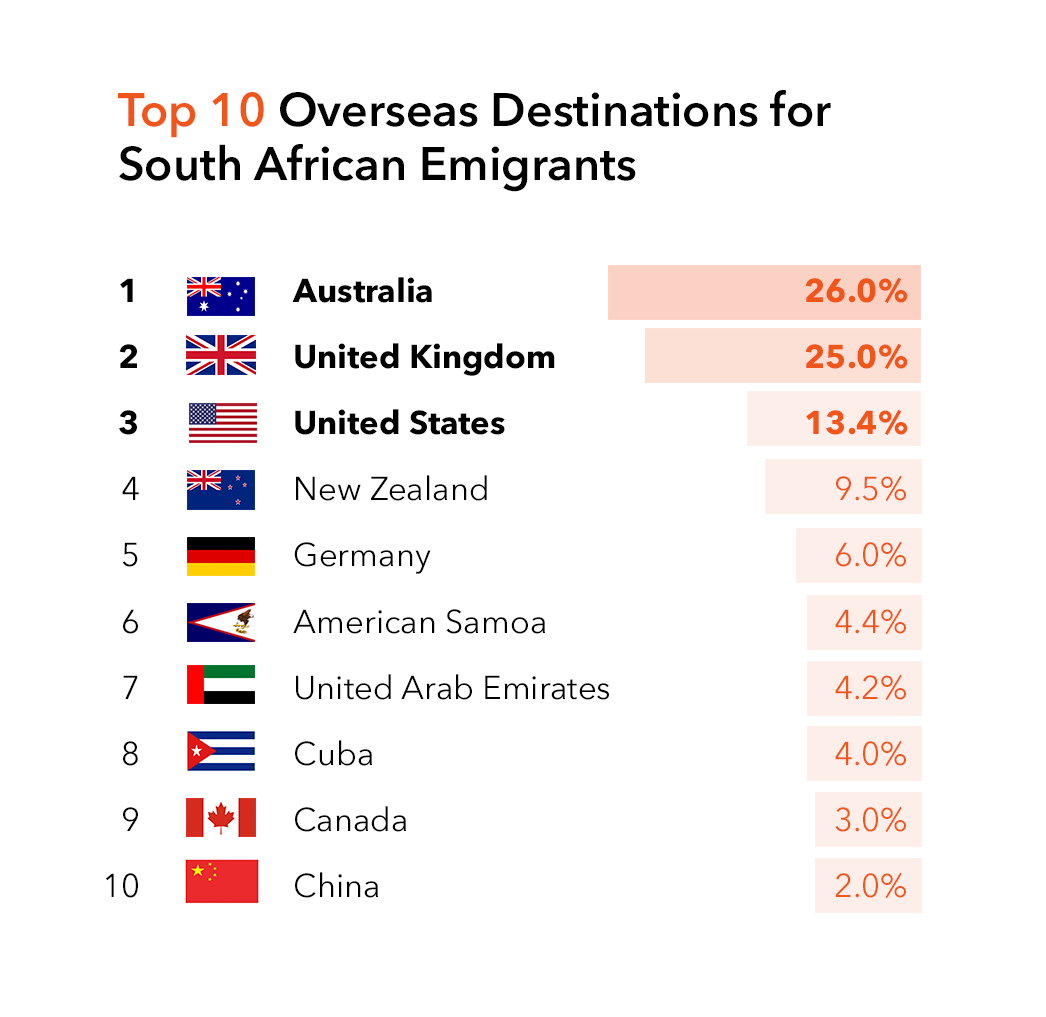More people than ever before are emigrating from South Africa, says The South African. 2018 is set to bring a new record. One way to measure this is to look at the number of people selling their houses and why they are doing so. The 4th quarter 2017 FNB Estate Agent Survey found a huge uptick, 7.4% (moved up from 2% in 2013), of house sales occurred for reasons of emigration. The most popular destinations for those emigrating from South Africa included the UK, Australia, New Zealand and the US.
If you’re moving to another part of the world, the skills you learnt in South Africa may not be the same skills that are in-demand throughout the rest of the world. So, if you are emigrating, what skills should you be learning? It seems that coding or programming skills are in high demand all over the world, no matter where you learnt them.
Emigrating from South Africa: To the UK
A popular destination for South Africans is the United Kingdom. The good news is that across Britain a number of businesses are short of employees in key sectors, explains Business Tech. Coupled with this, UK unemployment is at a historic 42-year low of 4.3%, and Brexit has led to a fall in net migration. So for those emigrating from South Africa, what skills are in high demand in the UK?
‘The UK Shortage Occupation List details the jobs for which there is a shortage of workers in the UK,’ explains Sable International emigration consultant Philip Gamble. There are 16 jobs on the list, including programmers and software development professionals. If your job is on the list, it’s far easier to find a job in the UK and get the relevant work permit, which in this case would allow you to work in the UK for just over five years – after which you can apply for ILR (Indefinite Leave to Remain). If your job is not on the list, it may be worth your time to learn how to code and switch careers into software engineering. Find out more about what software engineers do here.
Emigrating from South Africa: To Down Under
It’s not surprising that Australia or New Zealand could exert a strong pull for South Africans wanting to emigrate. The annual Human Development report, published in 2017 by the United Nations, looked at approximately 200 countries across a range of categories, including life expectancy, education, gender equality and financial wealth. Australia ranked in the top 5.
And New Zealand is also looking great. The BBC published a recent list of the top six countries believed to be best governed. New Zealand was included in this list due to its political stability, fundamental rights and lack of violence or terrorism.
Although Australia has slashed their Skilled Occupation list, the good news is that there are still more than 400 occupations that are in high demand. These include: Web Developer, Software Engineer and Software and Applications Programmers, among many other programming disciplines.
New Zealand distinguishes their skills shortages between long-term and immediate skills shortages. A long-term skill shortage includes both international and local shortages in this occupation. A Junior Software Engineer, as well as a Web Developer, are both on the long-term skill shortage list. You can search for other occupations here.
Emigrating from South Africa: To the USA
The United States is the third most popular destination for South Africans between 2006 and 2016, states StatsSA. Here’s a graph showing the top 10 overseas destinations, not including Africa, for those emigrating from South Africa.

IT and computer professionals are designated as speciality occupations that can receive a US visa. Remember, there are many different visa types and requirement in the US, so it makes sense to consult with a professional, because it can be a bit of a minefield.
Conclusion
If you are keen on emigrating from South Africa, there are lots of exciting options out there if you have software development skills. If you don’t already have this experience, a programming bootcamp will stand you in a good stead for a wide variety of new, stimulating countries.


